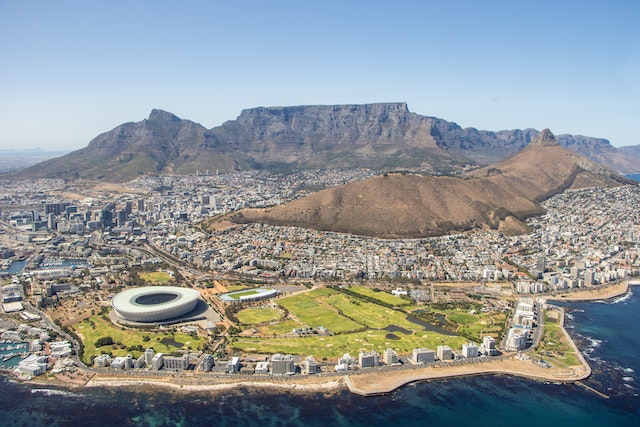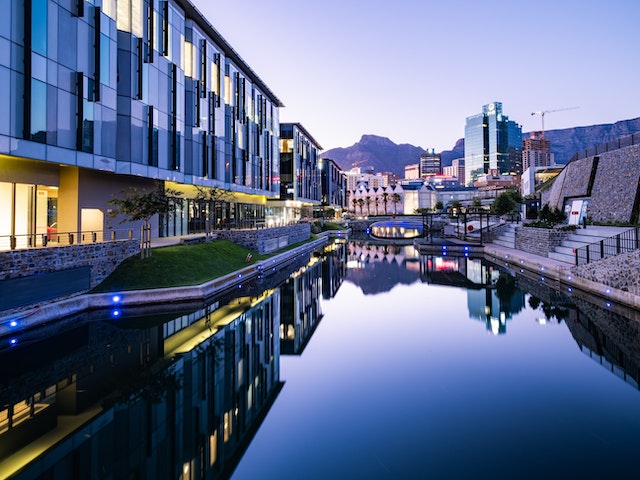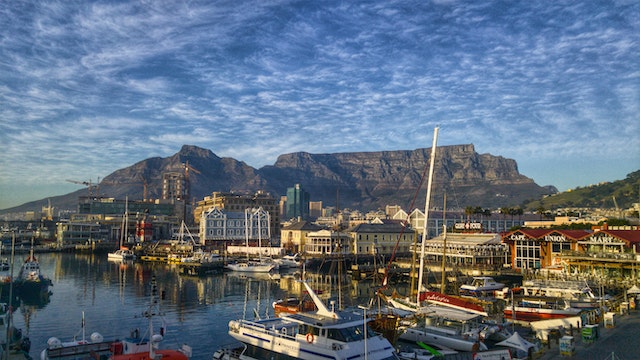Is Cape Town Safe? A Comprehensive Guide to Staying Safe in South Africa’s Most Popular Tourist Destination

Cape Town, located on the southwestern coast of South Africa, is a popular tourist destination known for its natural beauty, diverse culture, and rich history. However, concerns about safety have been raised by potential visitors, leaving many wondering if Cape Town is a safe place to travel to.
Understanding Cape Town is essential to understanding its safety. While Cape Town is known for its beauty and vibrant culture, it is also a city with a high crime rate. Violent crimes such as robbery, assault, and carjacking are not uncommon, particularly in certain areas of the city. However, it is important to note that crime rates have been decreasing in recent years, and many visitors have had safe and enjoyable experiences in Cape Town.
Key Takeaways
- Cape Town has a high crime rate, particularly in certain areas of the city.
- Crime rates have been decreasing in recent years, but visitors should still take precautions.
- Visitors can increase their safety by being aware of their surroundings, using common sense, and following safety tips.

Understanding Cape Town
Cape Town is a port city located in the Western Cape province of South Africa. It is the legislative capital of the country and is known for its beautiful beaches, stunning landscapes, and vibrant culture. However, like any other city in the world, Cape Town has its own set of challenges that visitors and residents must be aware of.
Crime is a concern in Cape Town, and visitors should take precautions to ensure their safety. It is recommended to avoid walking alone at night, especially in isolated areas. Visitors should also be cautious when using public transportation and keep an eye on their belongings at all times.
Cape Town is also known for its water scarcity issues, and visitors should be mindful of their water usage during their stay. The city has implemented various water-saving measures, including restrictions on water usage for residents and businesses.
Despite these challenges, Cape Town remains a popular destination for tourists and locals alike. The city boasts a rich history and culture, with many museums, galleries, and historical landmarks to explore. Visitors can also enjoy outdoor activities such as hiking, surfing, and whale watching.
In summary, while Cape Town has its challenges, visitors can still safely enjoy all that the city has to offer by taking necessary precautions and being mindful of their impact on the environment.
Safety Overview
Cape Town, like any other major city, has its fair share of crime, but it is generally safe for tourists and locals alike. The city has taken significant steps to improve safety, and the crime rate has decreased in recent years. However, visitors should still take precautions to ensure their safety.
Violent crime, such as rape and murder, is a concern, but it is not a common occurrence. Muggings and petty theft are more common, particularly in areas with high tourist traffic. Visitors should avoid carrying large amounts of cash or wearing expensive jewelry in public.
Gang violence is a problem in some of the city’s poorer neighborhoods, but tourists are unlikely to encounter it as these areas are not typically frequented by visitors. Armed robbery is also a concern, particularly in the city center at night. Visitors should avoid walking alone in poorly lit areas and should take advantage of taxis or ride-sharing services.
The police presence in Cape Town is strong, and they are generally responsive to reports of crime. Visitors should report any incidents to the police and their embassy or consulate if necessary.
Overall, while Cape Town is not without its safety concerns, visitors who take basic precautions are unlikely to encounter any issues.

Tourist Safety
Cape Town is a popular tourist destination, and the safety of tourists is a top priority for the city. The city has a dedicated tourist police force that patrols popular tourist areas to ensure the safety of visitors.
In addition to the tourist police, Cape Town also has a Visitor Support Programme that provides assistance and support to tourists. The programme offers a range of services, including tourist information, emergency assistance, and translation services.
Tourists are advised to take basic safety precautions when visiting Cape Town, such as not walking alone at night, avoiding displaying valuables, and being aware of their surroundings. It is also recommended that tourists use reputable tour operators and stay in secure accommodation.
While crime does occur in Cape Town, it is important to note that the vast majority of visitors to the city have a safe and enjoyable experience. By taking basic safety precautions and being aware of their surroundings, tourists can minimize their risk of becoming a victim of crime.
In conclusion, Cape Town has taken significant steps to ensure the safety of tourists visiting the city. With the help of the tourist police and the Visitor Support Programme, tourists can enjoy all that Cape Town has to offer with confidence and peace of mind.
Transportation Safety
Transportation in Cape Town can be safe and efficient if certain precautions are taken. Public transport, such as buses and trains, can be crowded and often targeted by pickpockets, so it is important to keep an eye on personal belongings at all times.
Taxis are a common mode of transportation in Cape Town and can be a safe option if used with caution. It is recommended to use a reputable taxi company or request a ride through a ride-hailing app such as Uber. It is also important to avoid hailing taxis on the street and instead arrange for a pickup in advance.
Carjacking can be a concern in Cape Town, especially at night and in certain areas. It is recommended to keep car doors locked and windows up while driving, and to avoid stopping at red lights in isolated areas. It is also advised to park in well-lit areas and avoid leaving valuables in plain sight.
Overall, while transportation in Cape Town can be safe, it is important to remain vigilant and take necessary precautions. By using reputable companies and being aware of surroundings, visitors can have a safe and enjoyable experience while getting around the city.
Accommodation Safety
When it comes to staying in Cape Town, safety is a top priority for travelers. Fortunately, the city offers a range of accommodation options that prioritize safety and security.
Hotels in Cape Town are typically safe and secure, with many offering 24-hour security, CCTV cameras, and secure parking. Many luxury hotels also have additional security measures in place, such as security guards and access control systems.
Airbnb is also a popular option for travelers to Cape Town, with many hosts offering safe and secure accommodation options. However, it is important to carefully review the listing and read reviews from previous guests to ensure that the accommodation is safe and secure.
When it comes to accommodation safety, it is important to take precautions regardless of where you stay. Always keep your valuables locked away in a safe or secure location, and be cautious when leaving your accommodation at night.
Overall, Cape Town offers a range of safe and secure accommodation options, whether you choose to stay in a hotel or an Airbnb. By taking necessary precautions, travelers can enjoy a safe and enjoyable stay in this beautiful city.

Food and Water Safety
Cape Town has a diverse culinary scene and offers a wide variety of food options for visitors. However, it is important to exercise caution when it comes to food safety. Visitors should avoid consuming food from street vendors and ensure that the food they eat is properly cooked and served at the correct temperature.
Tap water in Cape Town is safe to drink, but it has a distinct taste due to the chlorine used in the treatment process. Visitors who are not used to the taste may prefer to drink bottled water, which is widely available.
Cape Town has experienced a severe water shortage in recent years, and visitors are encouraged to conserve water during their stay. This includes taking shorter showers, not leaving taps running, and avoiding activities that require large amounts of water, such as filling up swimming pools.
Overall, visitors to Cape Town can enjoy the city’s food and water offerings with confidence by taking the necessary precautions to ensure their safety.
Safety in Different Districts
Cape Town is a city with a diverse range of neighborhoods, each with its own unique character and safety concerns. Here are some of the most notable districts and their safety considerations:
City Bowl
The City Bowl is the central business district of Cape Town and is generally considered safe during the day. However, caution is advised at night, particularly in areas such as Long Street, which can be rowdy and attract unsavory characters.
V&A Waterfront
The V&A Waterfront is a popular tourist destination and is generally considered safe. However, visitors should still exercise caution and be aware of their surroundings, particularly at night.
Suburbs
Cape Town’s suburbs are generally considered safe, with low crime rates and a strong sense of community. However, it is still advisable to take basic safety precautions, such as locking doors and windows at night.
Camps Bay and Clifton
These affluent beachfront neighborhoods are generally safe during the day, but visitors should exercise caution at night, particularly on the beaches themselves.
Cape Flats and Nyanga
These areas are known for high levels of crime and gang activity, and visitors are advised to avoid them unless accompanied by a local guide.
Langa and Kraaifontein
These townships are generally safe during the day, but visitors should exercise caution at night, particularly in areas with poor lighting.
Central Business Districts
The central business districts of Cape Town are generally safe during the day, but visitors should exercise caution at night, particularly in areas with less foot traffic.
Overall, Cape Town is a safe city to visit, but visitors should exercise caution and be aware of their surroundings, particularly at night and in areas known for high levels of crime.
Safety Tips
When visiting Cape Town, it is important to be vigilant and cautious to ensure your safety. Here are some safety tips to keep in mind:
- Keep your cash and valuables out of sight and in a safe place.
- Be aware of your surroundings and avoid displaying expensive items such as jewelry or electronics.
- Use a tour guide or reputable transportation service to avoid getting lost or ending up in unsafe areas.
- Keep emergency numbers handy in case of an emergency.
- Do not leave your belongings unattended, especially in crowded areas.
- Be aware of the security presence in your surroundings and follow their instructions if necessary.
It is also important to note that Cape Town has a high crime rate, so travelers should take extra precautions. Stay in well-lit areas and avoid walking alone at night. If possible, travel in groups or with a trusted companion.
By following these travel safety tips and being aware of your surroundings, you can enjoy your visit to Cape Town while staying safe and secure.

Scams and Theft
Cape Town, like any major city, has its fair share of scams and theft. Petty theft, pickpocketing, and credit card fraud are common in tourist areas and crowded places. Visitors should be cautious and aware of their surroundings, especially when carrying valuables.
Tourists should be wary of tour guide scams, where individuals pose as tour guides and offer cheap tours, only to take visitors to overpriced shops or steal their belongings. It is recommended to book tours through reputable companies or hotels to avoid such scams.
In addition, visitors should be cautious when using ATMs and avoid withdrawing large amounts of cash at once. Credit card fraud is also prevalent, and it is recommended to use cash or a secure credit card when making purchases.
It is important to note that muggings and violent crime are not common in Cape Town, but visitors should still exercise caution and avoid walking alone at night in unfamiliar areas.
Overall, visitors to Cape Town should be aware of potential scams and theft and take necessary precautions to ensure their safety.
Comparative Safety
When it comes to safety, Cape Town has had its fair share of concerns over the years. However, it is important to note that the city is not alone in facing safety issues. Many major cities around the world have their own unique challenges when it comes to crime and safety.
In comparison to other major cities in South Africa, Cape Town is generally considered to be safer than Johannesburg. Johannesburg has a higher crime rate, particularly when it comes to violent crime. However, it is important to note that crime can happen anywhere, and visitors should always take precautions no matter where they are.
When comparing Cape Town to other major cities around the world, it is important to note that safety can vary greatly depending on the specific area and neighborhood. While some areas of Cape Town may have higher crime rates, other areas may be relatively safe. Visitors should research the specific areas they plan to visit and take appropriate precautions.
Overall, while Cape Town may have its safety concerns, it is not alone in facing these issues. Visitors should be aware of the potential risks and take appropriate precautions, but should also keep in mind that crime can happen anywhere.
Natural Beauty and Safety
Cape Town is a city that boasts stunning natural beauty, and visitors can enjoy the great outdoors in a safe and secure environment. One of the most popular natural attractions in the area is Table Mountain National Park, which offers visitors a chance to hike, explore, and take in the breathtaking views of the city and the surrounding landscape.
Hiking is a popular activity in Cape Town, and there are many trails available for all skill levels. Visitors can explore Table Mountain National Park on foot, taking in the natural beauty of the area while enjoying the fresh air and exercise. It is important to note, however, that visitors should always take precautions when hiking, such as staying on marked trails and bringing plenty of water and sunscreen.
In addition to hiking, there are many other outdoor activities available in Cape Town, such as surfing, swimming, and cycling. The city’s beaches are popular destinations for locals and visitors alike, and there are many safe and well-maintained areas for swimming and sunbathing.
Overall, Cape Town is a safe and enjoyable destination for those seeking natural beauty and outdoor adventure. Visitors should always take precautions and be aware of their surroundings, but with proper planning and common sense, they can enjoy all that this beautiful city has to offer.

Visiting Cape Town
Cape Town is a popular travel destination, attracting millions of visitors each year. It offers beautiful landscapes, breathtaking beaches, and a vibrant culture. However, like any other city, it’s important to take certain precautions to ensure a safe and enjoyable trip.
Visitors to Cape Town must have a valid visa to enter the country. It’s recommended to apply for a visa well in advance to avoid any complications. March and November are considered the shoulder seasons, offering warm weather with fewer crowds. Visitors who prefer warmer weather can plan their trip during the summer months of December to February.
When visiting Cape Town, it’s important to be aware of your surroundings and avoid displaying any signs of wealth. Tourists should avoid walking alone at night and stay in well-lit areas. It’s also recommended to use reputable taxi services or ride-sharing apps to get around.
To make the most of your visit, consider visiting some of the city’s top attractions such as Table Mountain, Robben Island, and the V&A Waterfront. Visitors can also explore the city’s rich history and culture by visiting museums and art galleries.
Overall, Cape Town can be a safe and enjoyable travel destination with proper planning and precautions.
Socio-Political Context
Cape Town has a complex socio-political context that is shaped by its history of apartheid. The legacy of this system of institutionalized racial segregation is still evident in the city today and has contributed to ongoing social and economic disparities. Poverty is a significant issue in many areas of Cape Town, particularly in informal settlements where access to basic services and infrastructure is limited.
Demonstrations and protests are not uncommon in Cape Town, and visitors should be aware of their surroundings and exercise caution when traveling in areas where protests are taking place. It is also important to note that the police response to protests can be heavy-handed at times, and visitors should avoid getting caught up in any confrontations.
Despite these challenges, Cape Town remains a popular tourist destination and many visitors enjoy a safe and enjoyable stay in the city. However, it is important to take precautions and be aware of the local context to ensure a safe and enjoyable trip.
Insurance and Emergency
When traveling to Cape Town, it is essential to ensure that you have adequate travel insurance. This will provide peace of mind in case of any unexpected incidents during your trip, including theft, loss of personal belongings, or medical emergencies. It is recommended that you purchase travel insurance that covers medical expenses, including emergency medical evacuation.
Unfortunately, Cape Town has a high crime rate, and tourists are often targeted. Assaults and robberies are common, particularly in areas that are popular with tourists. It is important to take precautions to avoid becoming a victim of crime, such as not carrying large amounts of cash or valuable items and avoiding walking alone at night.
In case of an emergency, it is crucial to know the relevant emergency numbers. The emergency number in South Africa is 10111, which can be used for police, fire, and ambulance services. It is also recommended that you keep the contact details of your embassy or consulate with you at all times.
Overall, while Cape Town can be a safe destination for travelers, it is essential to take precautions and be aware of the risks. Having adequate travel insurance and knowing the relevant emergency numbers can provide peace of mind and ensure that you are prepared for any unexpected incidents that may occur.
Frequently Asked Questions
What are the safest areas to stay in Cape Town?
Cape Town has many safe areas for visitors to stay. Some of the safest areas include Camps Bay, Constantia, Hout Bay, and the V&A Waterfront. These areas are popular with tourists and have a high police presence.
Are there any precautions I should take when walking around Cape Town?
Visitors to Cape Town should take the same precautions as they would in any major city. It is recommended to avoid walking alone at night, especially in poorly lit areas. It is also important to keep an eye on personal belongings and avoid flashing expensive items.
What is the crime rate like in Cape Town compared to other cities?
Cape Town has a higher crime rate than many other cities, but it is important to note that crime is often concentrated in certain areas. Visitors who stay in safe areas and take basic precautions are unlikely to experience any issues.
Is it safe for solo female travelers to visit Cape Town?
Cape Town is generally safe for solo female travelers, but it is still important to take precautions. Women should avoid walking alone at night and should be aware of their surroundings. It is also recommended to use a taxi or ride-sharing service instead of walking.
What are the most dangerous areas to avoid in Cape Town?
The most dangerous areas in Cape Town include Khayelitsha, Nyanga, and Philippi. Visitors should avoid these areas, especially at night.
Are Uber rides a safe option for transportation in Cape Town?
Uber is a safe option for transportation in Cape Town. It is recommended to only use registered taxi services or ride-sharing services, such as Uber or Bolt. Visitors should avoid using unregistered taxis or minibus taxis, as they can be unsafe.


